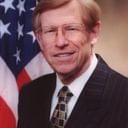
A federal appeals court in Washington has ordered the recusal of a military judge from hearing an appeal in the Guantánamo military commission death penalty trial of five defendants accused of direct responsibility for the 9/11 attacks. A unanimous three-judge panel of the United States Court of Appeals for the District of Columbia Circuit ruled on August 8 that Judge Scott L. Silliman of the United States Court of Military Commission Review (CMCR) was disqualified from participating in appeals in the case because of prior public comments he had made prejudging the guilt of accused 9/11 conspirator Khalid Sheikh Mohammad.
Lawyers for Mohammad had petitioned the court to have Silliman removed from the case, citing more than a dozen instances in which, they said, Silliman had made comments exhibiting a constitutionally intolerable risk of bias. Before becoming a judge, Silliman gave an interview to The World Today in 2010 about the case of Guantánamo Bay detainee Ahmed Khalfan Ghailani. During that interview, he said: “We’ve got the major conspirators in the 9/11 attacks still at Guantánamo Bay — Khalid Sheikh Mohammed and four others.” Later in the same interview, Silliman compared Ghailani’s culpability to that of Mohammed, calling them “two totally different types of cases” and saying “the magnitude of what they did is very different.”
The judges wrote that “the Court can hardly perceive how calling Petitioner one of the ‘major conspirators in the 9/11 attacks’ and referring to what he ‘did’ is anything other than the expression of an opinion concerning his responsibility for those attacks.” Such statements, they wrote, required Silliman to disqualify himself from the case. Because “Judge Silliman failed to do so,” the court wrote, Mohammad had provided “clear and indisputable” grounds for his removal.
Mohammad’s petition also cited remarks made by Silliman in a 2008 interview with the Los Angeles Times, where he said that “we’re going to have a military commission for those the United States believes, and most of the world acknowledges, to be ring leaders of the 9/11 attacks.” The petition also said that Silliman was quoted in another media interview in 2011 discussing how and where Mohammad “will be” executed.
The ruling vacates a June 29 order by the CMCR that had reinstated two charges against the defendants that the trial judge had dismissed. The CMCR will now have to re-hear the government’s appeal of that issue before a new panel.
University of Texas Law Professor Steve Vladeck, who represents several Guantánamo detainees in petitions seeking U.S. Supreme Court review of their cases, called the decision “yet another stinging rebuke” of the CMCR by the Court of Appeals. He said the decision in Mohammad’s case puts off resolution of another question raised concerning the CMCR, “whether active-duty military officers (including the other two judges on the CMCR panel that originally heard the government’s appeal) may lawfully serve as judges on the CMCR.”
S. Vladeck, “D.C. Circuit Holds that 9/11 Appellate Judge Should Have Recused,” Just Security, August 9, 2017; B. Eakin, “Attorneys for Accused 9/11 Mastermind Seek to Disqualify Military Court Judge,” Courthouse News Service, August 2, 2017.
Read the decision of the U.S. Court of Appeals for the District of Columbia Circuit. See U.S. Military.


